Crime
Criminals and their ears
In his post yesterday, Chuck mentioned that police were using "earprints" to track down criminals. The use of earprints may be something new, but the use of ears to identify criminals is actually pretty old.Back in the late 19th century, the French detective Alphonse Bertillon developed an elaborate ear classification system, in the belief that ears could be used as a unique means of identification, in the same way that fingerprints were. The Strand Magazine (May 1904) ran an article, with accompanying ear pictures, about Bertillon's system:

Bertillon's ear classification system was quite influential. It's the reason that police started taking mugshots from the side, as well as from the front, so that they could get a picture of the criminal's ear.
Posted By: Alex - Mon Aug 12, 2013 -
Comments (5)
Category: Crime, Nineteenth Century
The Herriges Horror
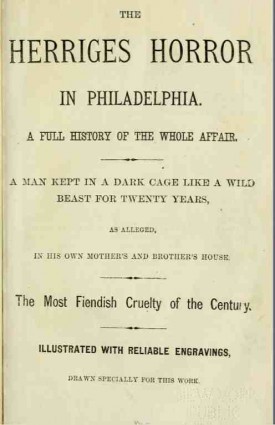
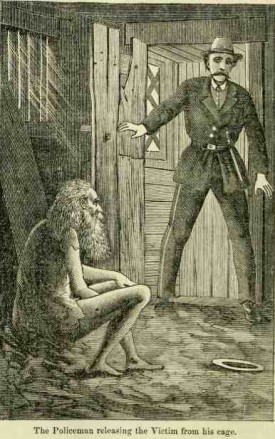
The more things change, the more they stay the same. Human nature, good or evil, is invariant.
Read the whole story here, in a small book from 1870.
Posted By: Paul - Wed Jun 19, 2013 -
Comments (2)
Category: Crime, Family, Horror, Nineteenth Century
Mean Mother
If you enjoy the trailer above, find the whole film below!
Posted By: Paul - Sat Jun 15, 2013 -
Comments (6)
Category: Crime, Death, Destruction, Movies, Racism, Stereotypes and Cliches, 1970s
Batman Reads NOTW!
From this issue.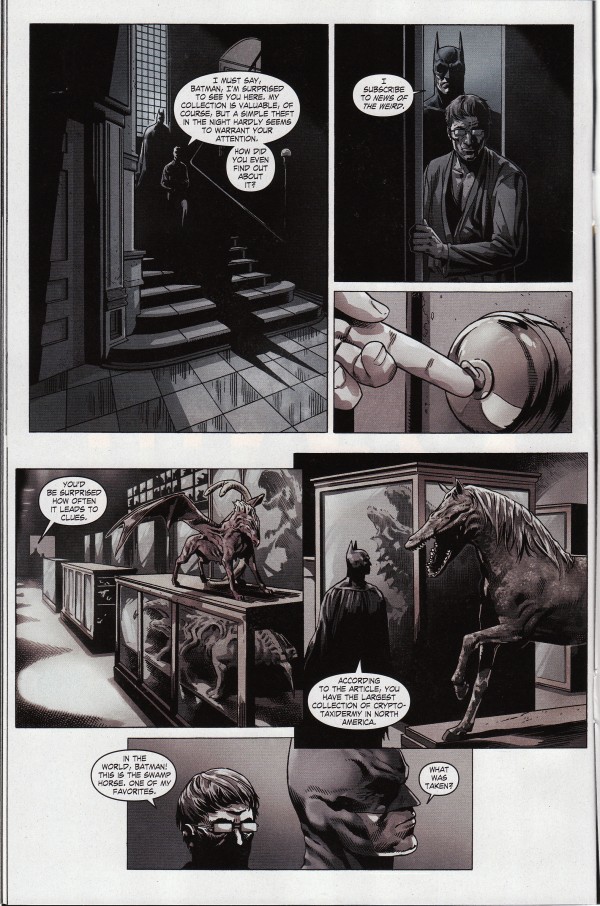
Posted By: Paul - Mon May 06, 2013 -
Comments (5)
Category: Crime, Weird Universe, Chuck, Comics
Doc Owens, Con Man
As early as December 1900, the notorious Doc Owens was making headlines, having established his racket of fleecing sea-going sheep.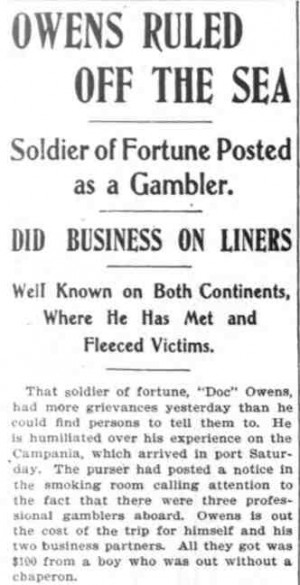
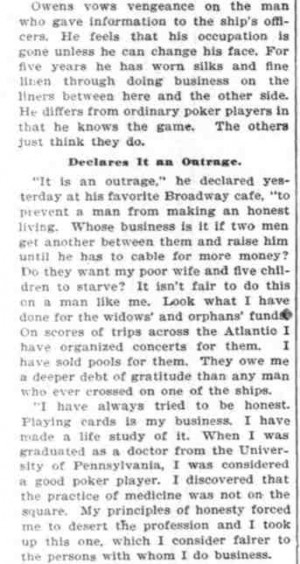
READ LEFT-HAND COLUMN, THEN RIGHT-HAND COLUMN, THEN SAME FOR THE TWO FOLLOWING.
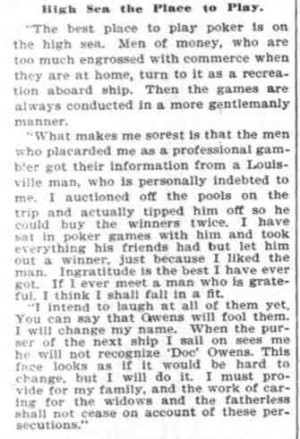
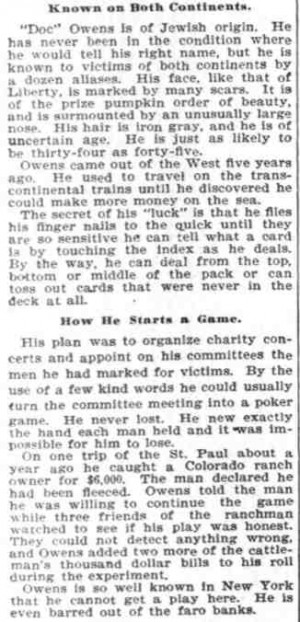
Three years later, The New York Times did a special feature on Owens and his fellows (with his photo miscaptioned).
Click here for very readable PDF download.
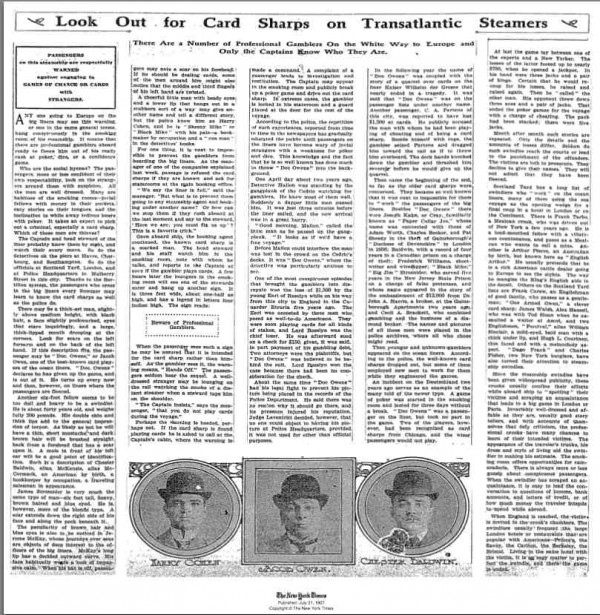
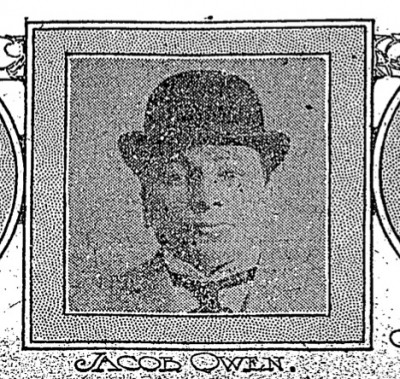
But Owens was to meet poetic justice in 1912, as our final piece reveals.
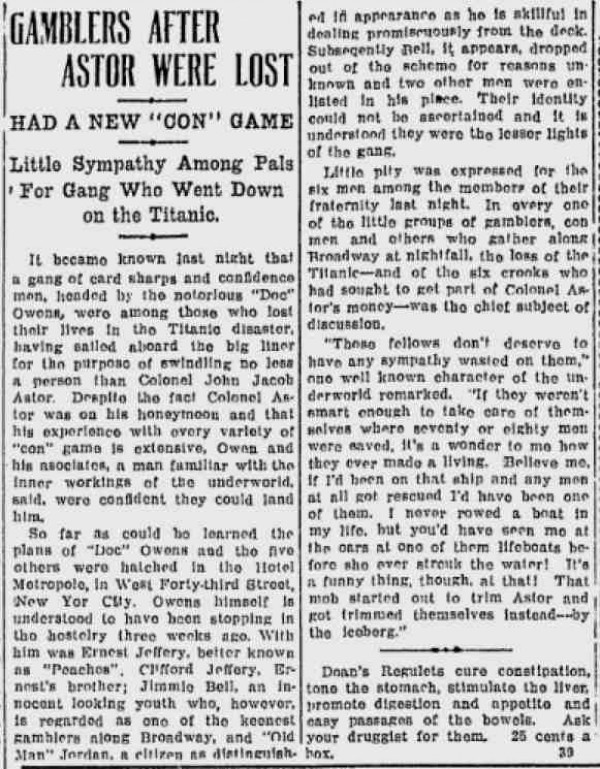
Posted By: Paul - Fri Feb 15, 2013 -
Comments (2)
Category: Crime, Death, Disasters, Frauds, Cons and Scams, Oceans and Maritime Pursuits, 1900s, 1910s, Gambling, Casinos, Lotteries and Other Games of Chance
Man loses eye in court
John Huttick was in court on the witness stand describing how he lost his eye in a bar fight. Suddenly said eye — the new prosthetic one, not the old one he lost — popped out of its socket and landed in his hand. The jurors gasped in fright. The judge promptly declared a mistrial.This case has sparked my curiosity, so I'm going to keep an eye out to see what happens during the rescheduled trial. [nj.com]
Posted By: Alex - Sat Feb 09, 2013 -
Comments (4)
Category: Crime, Eyes and Vision
Nigerian Pen Pals

Wait a minute--my spam filters are all set up to protect against "Nigerian pen pals!" Not to vilify a whole country just on account of a few million citizens who are scammers, but I don't think Nigeria would be my first choice when seeking global camaraderie.
But if you're interested, here you go.
Posted By: Paul - Mon Feb 04, 2013 -
Comments (11)
Category: Crime, Foreign Customs, Africa
Weapon War is On—LA Doubles Seattle Missile Launchers
It may be the beginning of a new arms race -- which city can collect the most missile launchers?Both of these cities were conducting a gun buyback programs. I can't wait to see what they get next.
Of course, Seattle got one, and LA only got two, but you can see where this is headed.
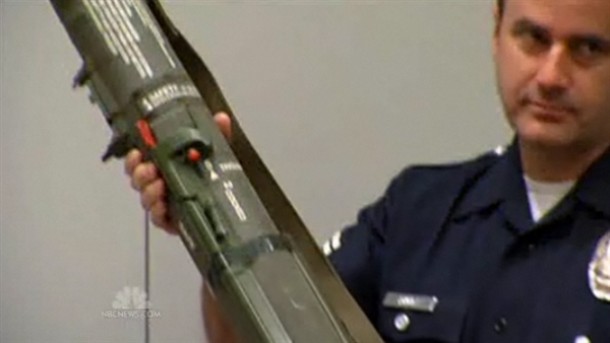
Pictured is one of the LA launchers. Here are the links to both stories.
http://usnews.nbcnews.com/_news/2012/12/28/16221808-rocket-launchers-surface-during-los-angeles-guns-buyback?lite
http://usnews.nbcnews.com/_news/2013/01/29/16754974-missile-launcher-shows-up-at-seattle-gun-buyback?lite
Which will be the next city to gather more missile launchers than LA?
Posted By: gdanea - Tue Jan 29, 2013 -
Comments (4)
Category: Crime
The Five Man Army
Samurais and the Old West: can the combo ever not satisfy?
Posted By: Paul - Sun Sep 16, 2012 -
Comments (9)
Category: Crime, Movies, Stereotypes and Cliches, Wild West and US Frontier, 1960s, Asia

| Who We Are |
|---|
| Alex Boese Alex is the creator and curator of the Museum of Hoaxes. He's also the author of various weird, non-fiction, science-themed books such as Elephants on Acid and Psychedelic Apes. Paul Di Filippo Paul has been paid to put weird ideas into fictional form for over thirty years, in his career as a noted science fiction writer. He has recently begun blogging on many curious topics with three fellow writers at The Inferior 4+1. Contact Us |




